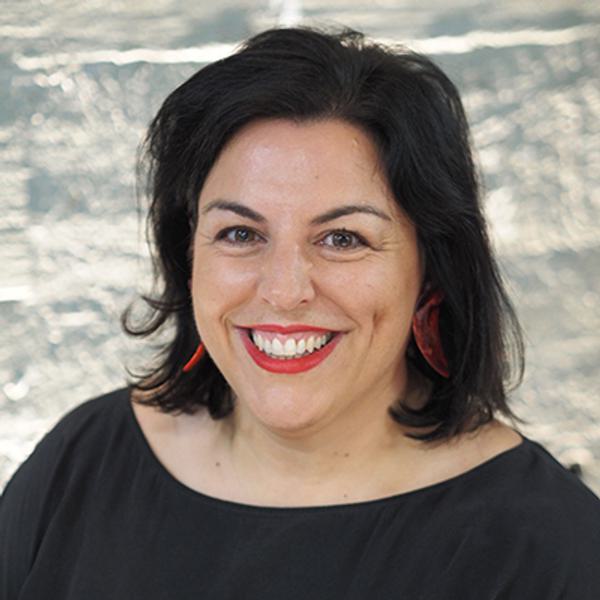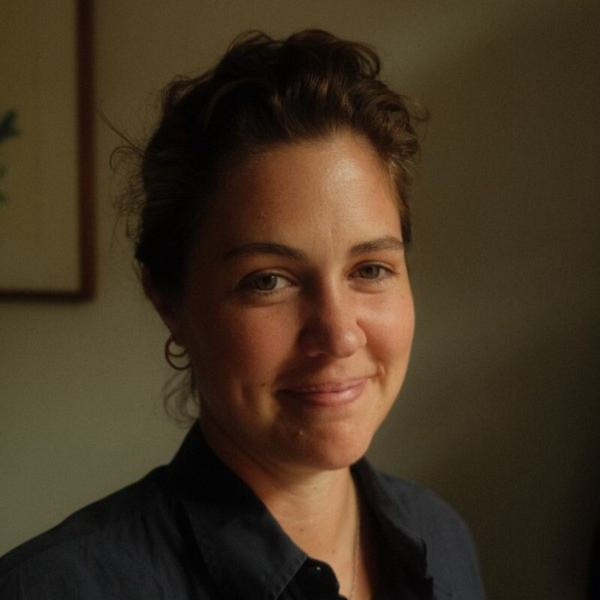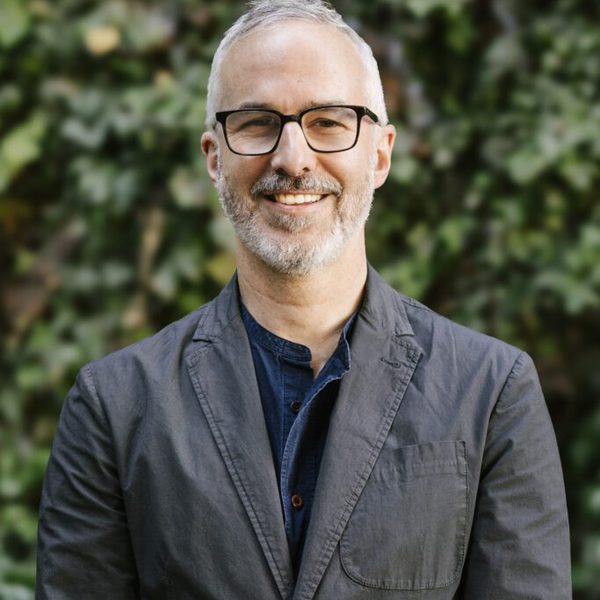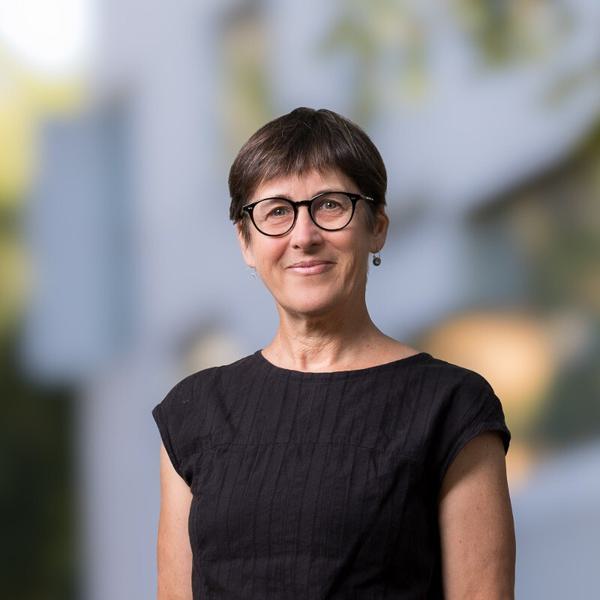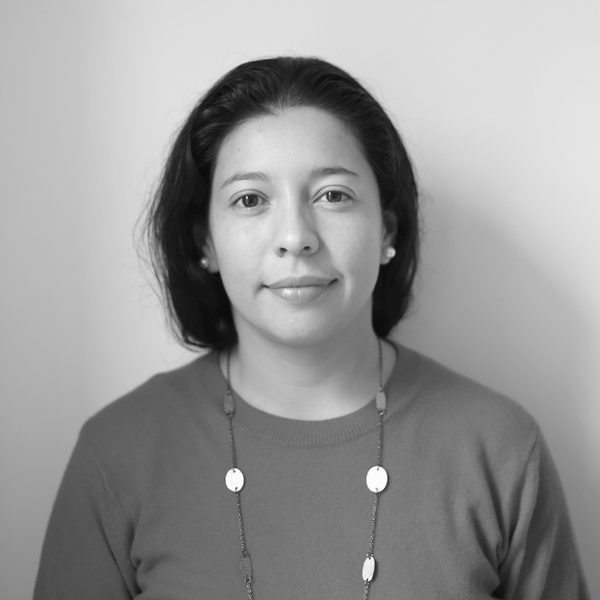Melbourne: Embedding Human Rights in Housing and Climate Action
11 August 2023

Cities are often where people experience the impacts of climate change and of climate action, which can raise living costs and socio-economic inequalities.
In a series of local research cycles, IHRB is spotlighting eight cities, focusing on their built environment decarbonisation and resilience plans. This research series asks: how is each city minimising the negative social consequences of climate action, and maximising the positive impacts that its built environment can have for inhabitants and the environment? And what are recommended actions from the government, investors, and the private sector?
Melbourne summary report
Greater Melbourne is projected to reach a population of 8 million by 2050: a growth which will considerably add to the existing demand for affordable housing. Notwithstanding this significant population increase, Australia’s national government has committed to achieving net-zero carbon emissions by 2050.
This study examines how the built environment stakeholders, including the capital municipality of Melbourne, are responding to the challenge of growing urbanisation, affordable housing demand, and the need to advance the city’s transition towards (social and environmental) sustainability.
We are not really taking a human rights perspective on housing [in Australia]. It's not historically what we've done. In relation to climate action, the same story applies really.
Researcher interviewed
Findings revealed:
- Housing is being delivered via various avenues, but these are generally not aligned with climate action and often exacerbate socio-economic inequalities.
- Built environment climate action lacks regulation, standards and codes, and tends to focus on new housing builds, overlooking existing and rental properties, and mostly benefitting high-income earners.
- The response to meeting housing needs must intersect with climate action in order to achieve Australia’s net zero carbon emission targets in a just way.
- The emergence of inclusive social procurement practices, frameworks grounded in both environmental and social outcomes and energy rating systems are encouraging, but these must be formalised, regulated and scaled.
Visioning workshop
As part of this research, on 29 May 2023, representatives of the academia, civil society, local and state government, NGOs, and the private sector gathered at a visioning workshop to envision pathways for a just transition in Melbourne’ built environment. The event took place at the Melbourne School of Design (MSD) at the University of Melbourne, and was co-hosted by IHRB and MSD.

Cities of the future
Visions for a just and climate-resilient built environment
We commissioned young artists in Melbourne, Lagos, Lisbon, Jakarta, Prague and Copenhagen to bring the visions of a fairer, greener future for each city to life through visual art pieces that can serve as a unifying vision for a locally-grounded, fairer transitions.
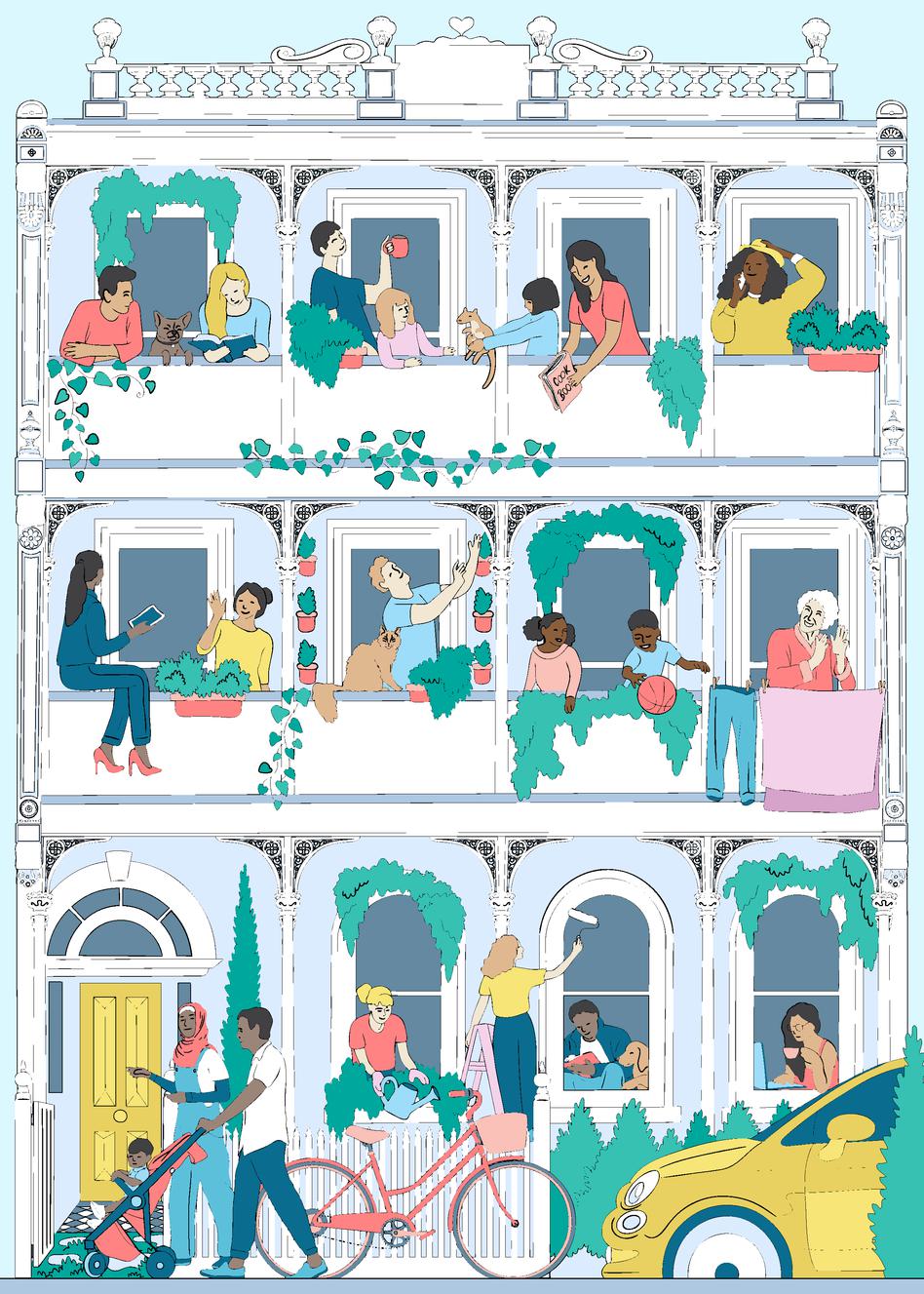
Sasha Heath, Melbourne, Australia
The Building for Today and the Future project
These research summaries are part of The Building for Today and the Future project, which benefits from guidance and insights from its thematic partners including ICLEI - Local Governments for Sustainability, Building and Woodworkers International, and the International Union of Tenants.
The Building for Today and the Future project is made possible with support from Laudes Foundation and Ove Arup Foundation.
Report authors
This report was researched and written by Joanna Tidy*, Lucy Lyon*, Natalie Galea, Judy Bush, and Dan Hill, University of Melbourne, Faculty of Architecture, Building and Planning in partnership with IHRB. Alejandra Rivera, IHRB Built Environment Global Programme Manager, edited and supervised its production.
*Equal contribution provided
